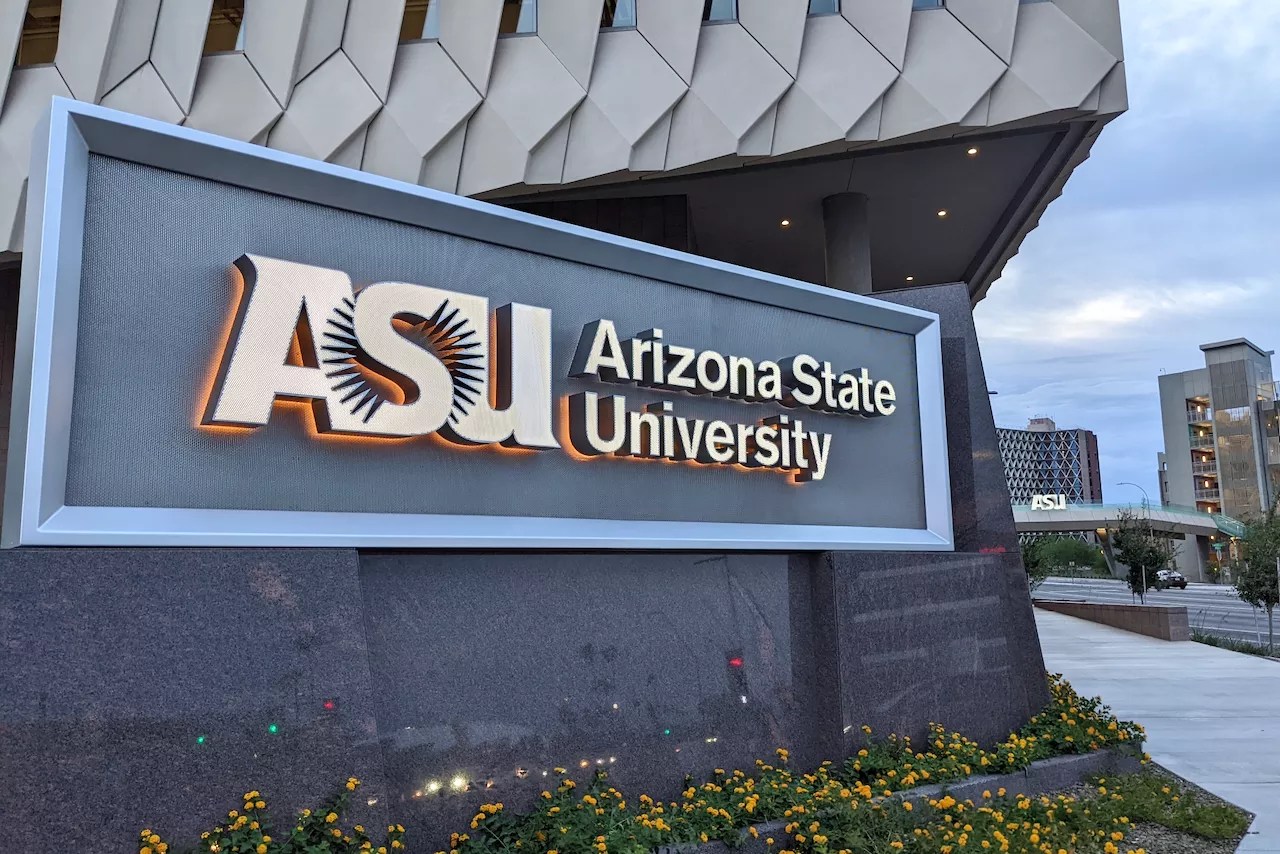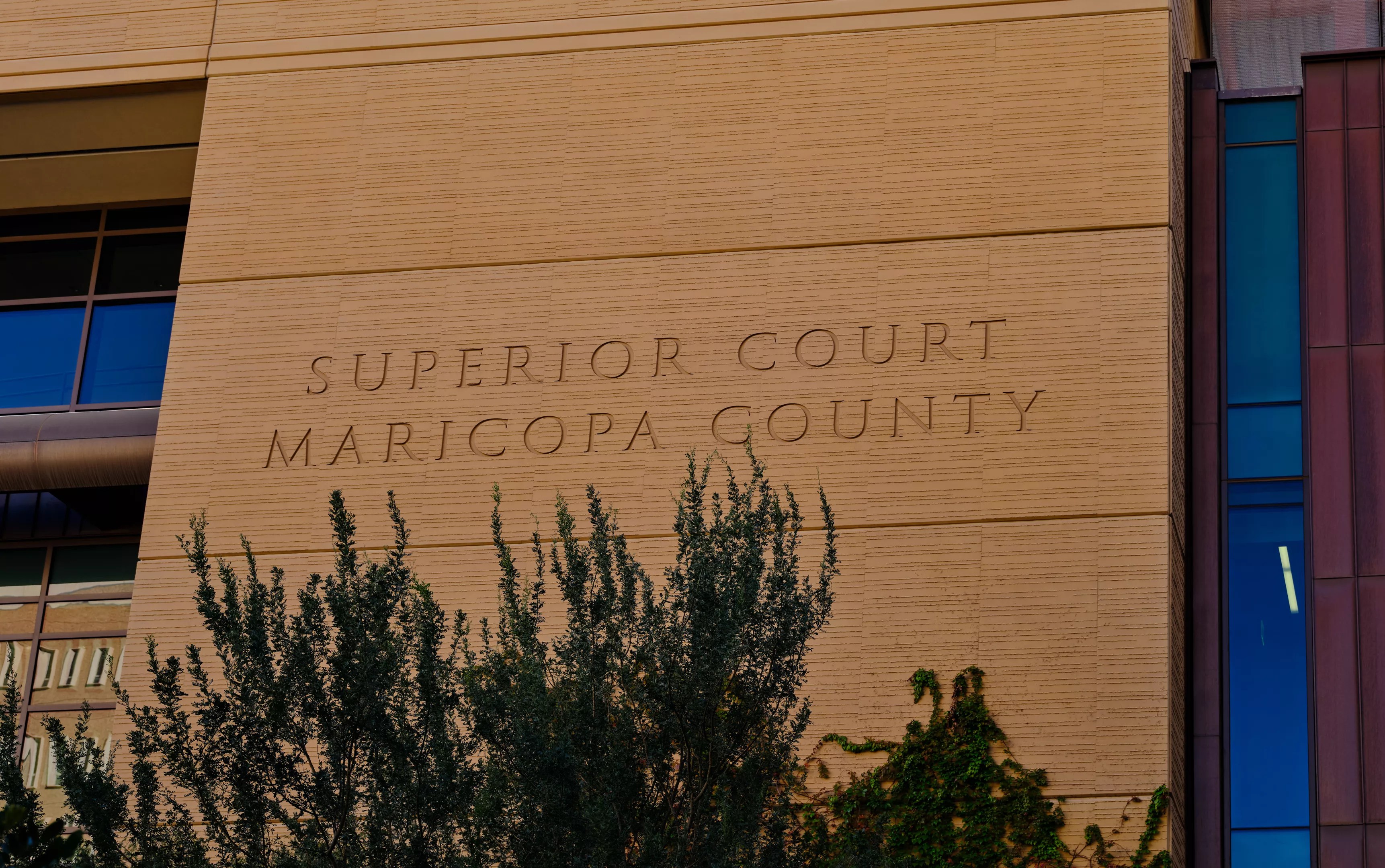
Matt Hennie

Audio By Carbonatix
Is Arizona State University’s mandatory Diversity Equity and Inclusion training headed for the compost?
That’s what the Goldwater Institute and ASU professor Owen Anderson are hoping for after a judge ruled in their favor in the institute’s ongoing anti-DEI lawsuit.
On Monday, Maricopa County Superior Court Judge Melissa Julian denied a motion to dismiss Goldwater’s May 17 amended complaint that challenges the “Inclusive Communities” training the university requires of all employees. The suit lists ASU’s governing body, the Arizona Board of Regents, as its defendant. It claims that “Inclusive Communities” is DEI by another name and that Anderson, who teaches religious studies, risked being disciplined for refusing to take the course or its required test.
According to the suit, the online course discusses such subjects as “white fragility,” “white privilege” and how “white supremacy” is normalized in society. It also instructs course-takers about the evils of microaggressions, the necessity to “decolonize” academia and how heterosexuality is “privileged by going largely unquestioned.”
By doing so, the suit argues, the training violates a state statute signed into law in 2021 by Gov. Doug Ducey that prohibits government entities “from requiring, its employees to participate in mandatory training programs that present any form of ‘blame or judgment on the basis of race, ethnicity or sex.'”
Goldwater wants ASU enjoined from forcing employees to take the training.
ABOR’s attorneys challenged the lawsuit on technical legal grounds, arguing that Anderson, who is white, lacked standing to bring the suit because he first refused to take the training in 2022 and so far has not suffered any harm. ABOR also argued that the law in question, ARS 41-1494, does not allow a private individual to sue.
In a six-page ruling based in part on oral arguments that took place in October, Julian ruled that Anderson did have the right to sue. It also did not matter that Anderson had yet to be punished for blowing off the training, Julian wrote while citing a Supreme Court precedent that a plaintiff “does not have to await the consummation of threatened injury to obtain preventative relief.”
However, Julian did agree with ABOR that the suit’s other plaintiff, D. Ladd Gustafson, couldn’t sue just on the basis of being “a resident of Arizona and a taxpayer” and dismissed him from the case.

On his Substack, ASU professor Owen Anderson was ecstatic that his anti-DEI lawsuit against the university will proceed.
Arizona State University
‘Crucial step forward’
Unsurprisingly, both the Goldwater Institute and Anderson were delighted that the suit will move forward. In a statement emailed to Phoenix New Times, Goldwater staff attorney Stacy Skankey wrote that the court’s ruling “affirms the importance of holding public institutions accountable for policies that violate constitutional rights” and is a “crucial step forward” in vindicating Anderson’s right to refuse the training.
“We may now proceed with our case to ensure that all ASU faculty and staff are free from mandatory taxpayer-funded trainings that impose ideological conformity,” she added.
On Anderson’s Substack, where the prickly professor regularly inveighs against the perils of political correctness, the self-described conservative Christian was ecstatic at the prospect of ASU administrators being deposed over the DEI training.
“What this means is that we will be able to ask ASU officials, under oath and on public record, about why they require employees to learn about the problems of ‘whiteness’ and ‘heteronormativity,'” Anderson wrote. “Is ASU opposed to ‘white people?’ Does it consider some students to be problematic based on their skin color?”
Responding to a request for comment, an ASU spokesperson, who asked not to be named, downplayed the ruling. “The trial court ruled on two procedural matters, one in favor of ASU and one against,” the spokesperson wrote. “The court did not decide or comment on the merits of the case.”
Goldwater’s anti-DEI suit is part of an ongoing campaign by the nonprofit against DEI policies, reflecting a larger ideological backlash against DEI mandates and what is sometimes referred to as “woke” language.
In 2023, Goldwater issued a report detailing how job listings at Arizona universities required applicants to submit “diversity statements” espousing their support for DEI principles, which the institute likened to the anti-Communist “loyalty oaths” of the 1950s. ABOR subsequently dropped the job requirement for diversity statements.
Earlier this year, Goldwater issued a report lambasting ASU’s Walter Cronkite School of Journalism and Mass Communication for a mandatory course on “Diversity and Civility” that “forces all journalism students to invest time and tuition in support of identity politics, ‘microaggressions,’ ‘cisgender’ privilege, and the use of ‘preferred pronouns.'”
ASU did not immediately respond to an inquiry regarding the Cronkite report.

Maricopa County Superior Court in Phoenix.
Tony Webster
‘Mischaracterizations of what DEI is’
Goldwater also supported 2023 laws in Florida and Texas that banned the use of diversity statements in hiring and eliminated DEI offices at state colleges and universities. Those laws were part of a pattern that continues into 2024 and promises to persist into 2025, according to a recent article in Inside Higher Education.
The IHE piece reports that six states passed anti-DEI laws last year, and Republican state legislatures nationwide are gearing up to do likewise in 2025. IHE notes that supporters of DEI initiatives complain that the “conservative backlash to DEI is based on mischaracterizations of what DEI is.”
DEI’s intent is not reverse discrimination, proponents argue, but rather it is “a set of resources and programs aimed at making college more accessible to those who have been historically locked out of higher education, without disenfranchising any other populations.”
These programs have their origins in the Civil Rights Movement of the 1960s and propose lofty goals. But critics such as those at the Foundation for Individual Rights and Expression, a libertarian-minded free-speech advocacy group based in Philadelphia, argue that the initiatives can stifle dissent and “cast a pall of orthodoxy” over campuses.
And yet, DEI’s defenders, which include the ACLU, contend that anti-DEI policies are intended to censor the discussion of troubling subjects in U.S. history, both past and present.
In February, Leah Watson, a senior staff attorney with the ACLU’s Racial Justice Program, wrote on the organization’s website that “anti-DEI efforts are the new frontier in the fight to end the erasure of marginalized communities” and part of a larger effort to “censor classroom instruction on racism and sexism.”
Watson added, “This attack on DEI is part of a larger backlash against racial justice efforts that ignited after the 2020 killings of George Floyd, Ahmaud Arbery and Breonna Taylor. At the time, workplaces, schools, and other institutions announced plans to expand DEI efforts and to incorporate anti-racism principles in their communities.”
She vowed that the ACLU would continue to oppose anti-DEI efforts, despite their continued successes in the legislative and legal realms.